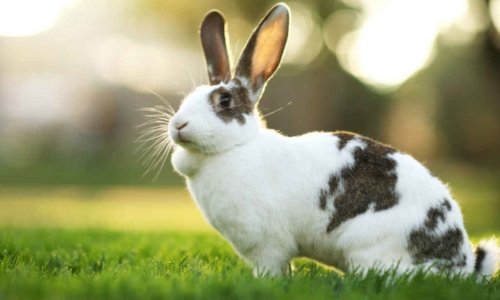Rabbits are a popular choice as a first pet for many families, which is no surprise since they are highly intelligent, inquisitive animals. Owning a rabbit can be extremely rewarding for people of all ages. Here are some facts worth knowing about our beloved bunnies!
- Rabbits love company!
Rabbits are very social creatures and are happiest when they are in the company of their own species. If they are kept on their own, they can become extremely sad and depressed. They also enjoy being around people, meaning they can make a wonderful pet!
- Rabbits can live for up to 12 years
It is often believed that rabbits have a lifespan of around five years, but a well cared for rabbit can actually live between eight to twelve years, with smaller breeds generally living longer than larger breeds. With the right environment and care, rabbits make great long-term companions!
- Baby rabbits aren’t actually called bunnies!
Whilst baby rabbits are commonly referred to as bunnies, a baby rabbit is actually called a kit! A female is called a doe and a male is called a buck.
- Rabbit’s ears are one of their best features!
Thanks to their long ears that can grow up to 10 centimetres in length, rabbits have fantastic hearing! Most rabbits can turn their ears 180 degrees, which can help them pinpoint the exact location of a sound and detect any threats. Their oversized ears can also help cool them down on a hot day, as the large surface area gives more places for the body heat to escape.
- Rabbit’s also have wonderful eyesight
Despite being born with their eyes closed, adult rabbits have almost 360 degree vision. They quite literally have ‘eyes in the back of their head’, meaning they can see in almost every direction. This helps them spot predators and enables them to see what’s coming from behind.
- They’re athletic little creatures!
Rabbits can jump as high as 90 centimetres in one leap! They are known for performing an athletic leap called a ‘binky’ when they’re happy. A binky can be described as a big hop and twist of the body mid air. The binky is one of the cutest behaviours to witness, and shows your rabbit expressing pure joy.
- Rabbit’s teeth never stop growing
Rabbit’s teeth grow continuously like human fingernails, and the only thing that can wear them down is eating a diet consisting primarily of plant material. As the rabbit chews on plant material such as grass and vegetables, the teeth will be gradually worn down, meaning they never get too long. Overgrown teeth can happen, but most overgrown tooth problems are preventable by providing a constant supply of hay or fresh grass.
- Rabbits can’t vomit
The rabbit digestive system is not capable of moving in reverse. Unlike cats who produce hairballs, rabbits deal with their swallowed fur by using roughage to push it through their digestive system.
- Carrots are only good in moderation
Root vegetables aren’t actually a natural part of a rabbit’s diet. Carrots are high in sugar and contribute to tooth decay, so should be fed occasionally and in small amounts. You should choose other vegetables like weeds and greens.
- Rabbits can be house trained
Rabbits are fun and loving companions! We hope you learnt something about these intelligent and quirky friends. Be sure to consult with your veterinarian to decide if a rabbit is the perfect pet for you.






